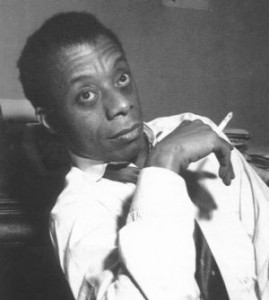Last weekend I was looking after my brother’s apartment and I had forgotten to bring the book I am reading at present – an intriguing history of Prince Louis Rwagasore, one of the leaders of the Burundese independence movement and murdered soon after freedom came, like Lumumba.
I looked at my brother’s bookcase for an alternative. I found James Baldwin’s Giovanni’s Room, written in 1964, a Dutch translation was published in 1972 by … hmmm, well, okay … Zwarte Beertjes (Black Bears).
I could not stop reading this beautifully written novel: brilliant dialogues, a fascinating story, intensely shaped characters, superior storytelling and sometimes almost endless sentences one wished would never stop. A story about an American youngster in Paris torn apart between two lovers, a male and a female.
Long ago I have read some of Baldwin stories and essays dealing with issues of race. If I would have been asked to describe the man I would have linked him to the US civil rights movement and, may be, with homosexuality. I have now discovered Baldwin the novelist. One wonders why the Nobel Committee overlooked him when he was still alive.
After I had finished the book – warming up to read all the other titles he wrote – I checked Wikipedia. About Baldwin it says:
‘His novels and plays fictionalize fundamental personal questions and dilemmas amid complex social and psychological pressures thwarting the equitable integration of not only blacks yet also of male homosexuals—depicting as well some internalized impediments to such individuals’ quest for acceptance—namely in his second novel, Giovanni’s Room (1956), written well before the equality of homosexuals was widely espoused in America.[2] Baldwin’s best-known novel is his first, Go Tell It on the Mountain (1953).’
It’s more proof of how the work of black artists is always politicized – in western views they must be the expression of a desire for equality, freedom, rights … but never expressions of literary eminence. To me it seems to be the black man’s burden.
The publisher notices the lack of a more political message in Giovanni’s Room. The cover text even states that this is an ‘only white characters’ book (I found hardly evidence for this). Now the book becomes political because of his lack of politics. We must decolonize our mindsets so that we can enjoy stories by black writers for what they are.

